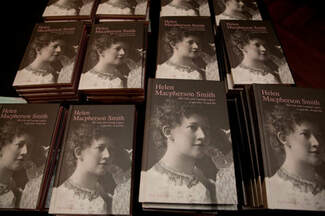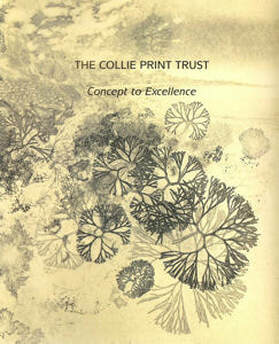HISTORIES
A successful history calls for a blend of investigation, research, and interviewing with sensitivity, as well as an understanding of the nature of the work of the foundation or company. Developing the pathways of a written history is an involving and collaborative process, with the ability to share the stories of the past, and give voice to a vision for the future.
Why histories are commissioned
There are many reasons histories are commissioned: to honour a founder, to mark an anniversary, to tell the story of how a particular foundation, trust or firm came into being. Histories can “put flesh on the bones”, bringing relevance and a living presence. It can contain surprises and uncover hidden treasures. Histories are waiting to be written, with the raw material stored in boxes, in files, in albums and increasingly, captured by newer technologies. The most consistent, reliable and often the most telling memories are stored in the minds of the people involved - those who carry the baton.
Passing on the culture
Histories can inform staff and board members, passing on valuable aspects of a culture which may have become distilled over time. When a foundation gives a history to grant-seekers, they see the founder beyond what has previously been simply the plaque on the wall. Companies give them to staff and their existing and prospective clients to help to know the company better. One director said that their written history “is a way of defining our difference”. A history makes an organisation more accessible, part of the public domain. The potential is there to record, to celebrate and to build.
For future generations
Foundations and companies have a body of corporate memories which, when shared with the writer, can be successfully translated into a written history. It can transmit a sense of values, of time and place, bring coherence to recording the past and signal directions for the future. Younger members who may not personally know the founder can follow a pathway to more fully absorb their inherited culture, preserving its continuity.
Why histories are commissioned
There are many reasons histories are commissioned: to honour a founder, to mark an anniversary, to tell the story of how a particular foundation, trust or firm came into being. Histories can “put flesh on the bones”, bringing relevance and a living presence. It can contain surprises and uncover hidden treasures. Histories are waiting to be written, with the raw material stored in boxes, in files, in albums and increasingly, captured by newer technologies. The most consistent, reliable and often the most telling memories are stored in the minds of the people involved - those who carry the baton.
Passing on the culture
Histories can inform staff and board members, passing on valuable aspects of a culture which may have become distilled over time. When a foundation gives a history to grant-seekers, they see the founder beyond what has previously been simply the plaque on the wall. Companies give them to staff and their existing and prospective clients to help to know the company better. One director said that their written history “is a way of defining our difference”. A history makes an organisation more accessible, part of the public domain. The potential is there to record, to celebrate and to build.
For future generations
Foundations and companies have a body of corporate memories which, when shared with the writer, can be successfully translated into a written history. It can transmit a sense of values, of time and place, bring coherence to recording the past and signal directions for the future. Younger members who may not personally know the founder can follow a pathway to more fully absorb their inherited culture, preserving its continuity.






